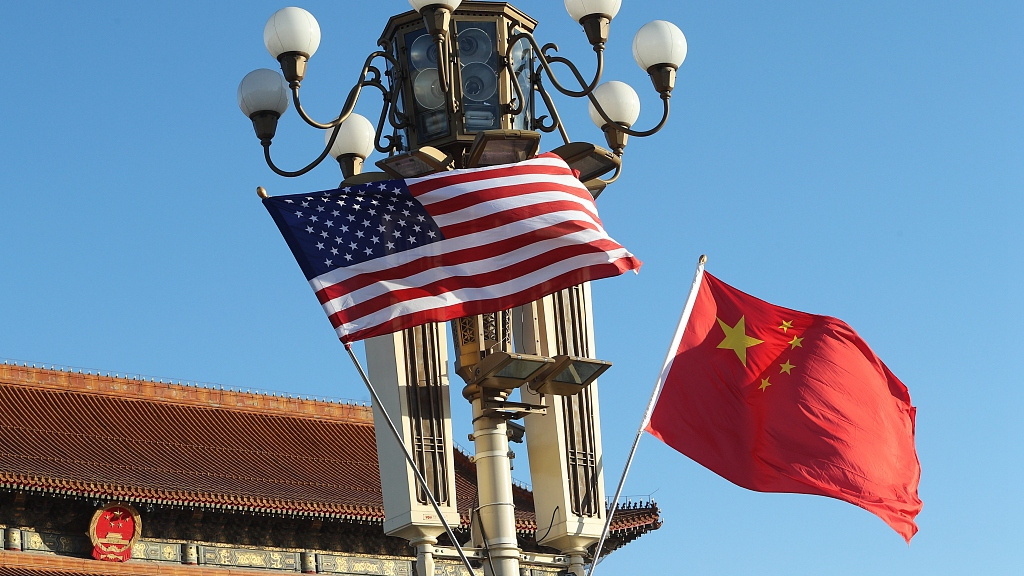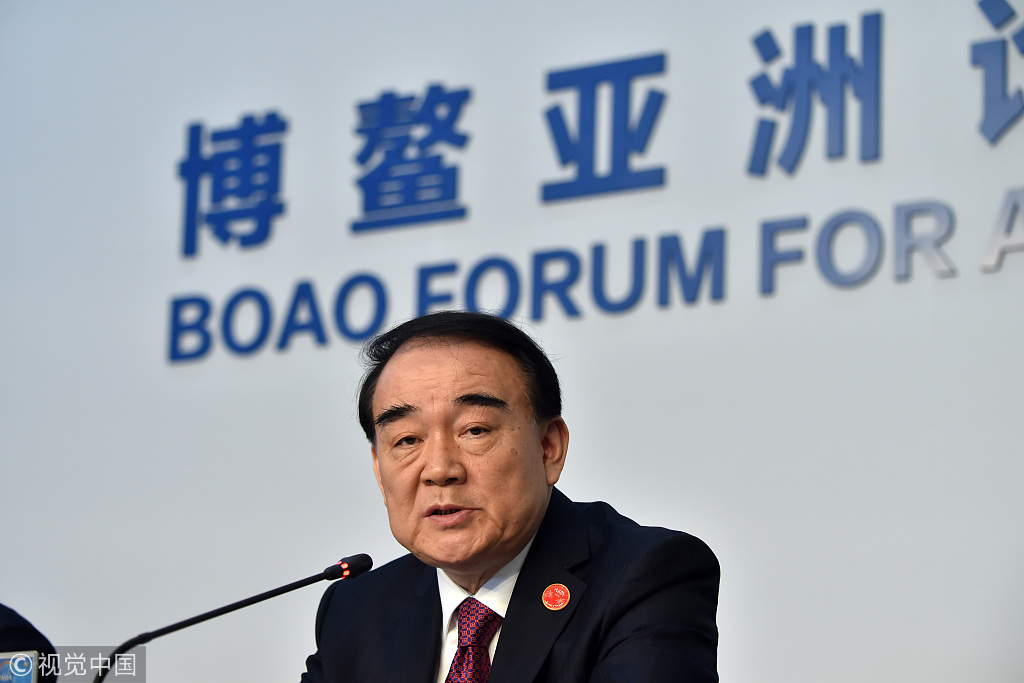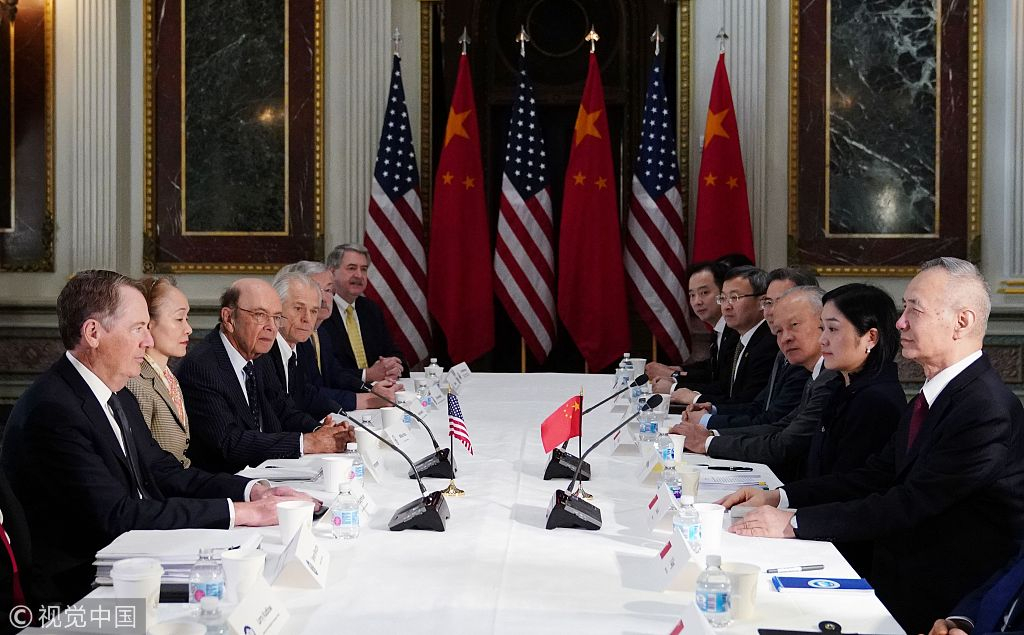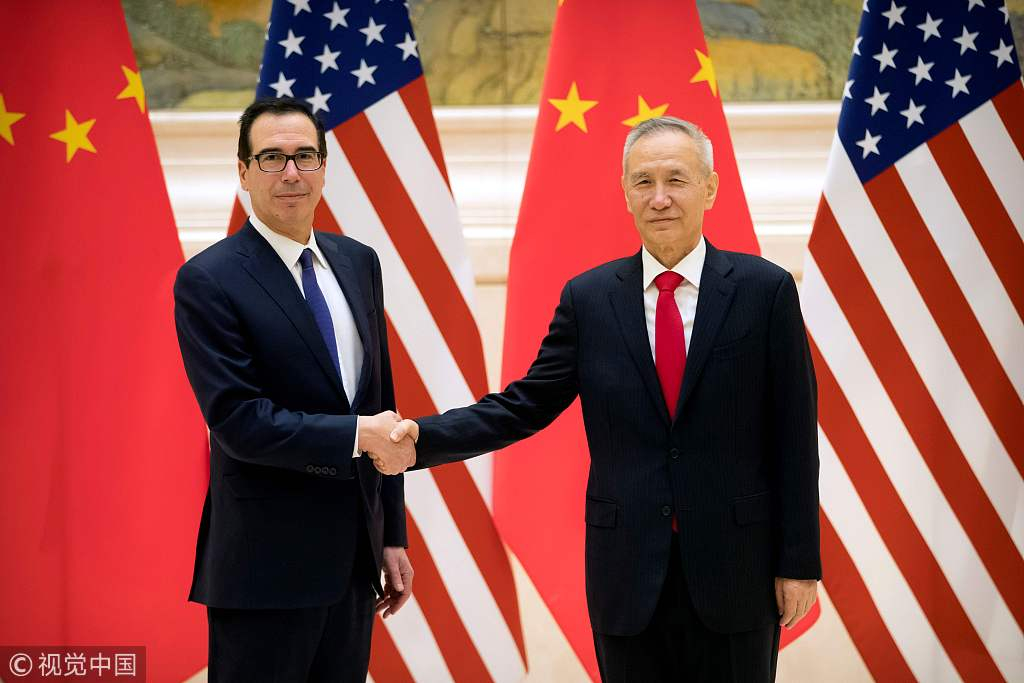
Opinion
13:20, 29-Mar-2019
China, U.S. should work together for prosperity of globalized world
Li Yong

Editor's Note: Li Yong is deputy chair of the Expert Committee of the China Association of International Trade. The article reflects the author's opinion, and not necessarily the views of CGTN.
March 28 is a day of special significance because of two parallel events, one being the opening ceremony of the plenum of Boao Forum for Asia 2019 (BFA 2019), at which Chinese Premier Li Keqiang made a keynote speech, pledging additional reform and opening-up measures to be taken in the remainder of 2019; another the arrival of U.S. delegation headed by Treasury Secretary Steven Mnuchin and U.S. Trade Representative Robert Lighthizer for the eighth round of trade talks between China and the U.S. in Beijing, which are further efforts to hammer out a comprehensive deal to end the trade war between the world's two largest economies.
Both events, although coincidental, have important implications on the future of the global economy and trajectory of globalization and multilateralism.
Consistent with China's advocates for globalization and multilateralism, the Boao Forum for Asia 2019 focuses on the theme of “Shared Future, Concerted Action, Common Development,” which is intended to provide an open and inclusive platform for all participants to discuss issues of common concern such as the future of the world economy and solutions to the challenges Asian countries are facing today.
As explained by Li Baodong, the forum's secretary-general, the context of the BFA 2019 is the lack of momentum in global economic growth, which is dwelled in multiple uncertainties that are further complicated by the increasing counter current of anti-globalization amid signs of easing trade frictions.
“Globalization and free trade is an objective trend of economic growth,” as Li pointed out in the BFA press conference, “and multilateralism, dialogue and cooperation are desired by most countries and openness and innovation are the only choice for sustained advancement of the world economy and globalization.”

Li Baodong, secretary-general of Boao Forum for Asia, presided over the opening plenary of the BFA annual conference in Boao, south China's Hainan Province, March 26, 2019. /VCG Photo
Li Baodong, secretary-general of Boao Forum for Asia, presided over the opening plenary of the BFA annual conference in Boao, south China's Hainan Province, March 26, 2019. /VCG Photo
In his keynote speech at last year's Boao Forum for Asia, President Xi Jinping announced that China would implement a series of opening-up measures, including substantially easing market access, creating a more attractive investment environment, strengthening intellectual property protection and expanding imports.
Those measures, as a part of China's own reform agenda, have served as facilitating factors in China's effort to improve trade and investment relations with the U.S., but at the same time, contrasted the unilateral actions taken by the U.S. to block its trade and investment cooperation with China.
There have been demonstrated adverse effects on both economies as a result of the trade frictions. The two economies are so interdependent and intertwined that no one is going to benefit from the trade actions by both sides.
Therefore, the two sides are striving to overcome their differences on trade, which would lead to even greater integration between the two economies. At this critical juncture, it is important for China and the U.S. to develop a new model for economic and trade relations that will benefit both countries.
Beijing and Washington need to have bigger visions that transcend the differences and problems that exist today. In dealing with the trade problems between the two, both need to hold a holistic view as suggested below about the present and future relationship rather than taking a reductionist approach against each other.
Both countries should evolve with the times in building a new relationship with each other, and abandoning the old cold war mindset should be the right starting point for the two sides to regain trust and confidence.

U.S. Trade Representative Robert Lighthizer (L) sits opposite to China's Vice Premier Liu He during U.S.-China trade talks in the Eisenhower Executive Office Building in Washington, DC, February 21, 2019. /VCG Photo
U.S. Trade Representative Robert Lighthizer (L) sits opposite to China's Vice Premier Liu He during U.S.-China trade talks in the Eisenhower Executive Office Building in Washington, DC, February 21, 2019. /VCG Photo
Sustaining a good, stable, mutually respectful and win-win bilateral economic and trade relations to avoid disruptive outcomes would pave the way to a new model of China-U.S. economic and trade relations.
It's also worth noting that managing differences by establishing a trust-based platform of dialogue will be conducive to seeking productive and constructive solutions.
Thus, both governments should make efforts to develop new understanding and perspectives about each other's economic and trade initiatives, and take proactive actions to promote cooperative interdependence.
Besides, the two majors should look at each other in long-term perspectives, pursuing opportunities of cooperation rather than erecting roadblocks as decoupling efforts based on ideological and political biases will not be a wise and pragmatic solution for both.
The differences in political, social and economic systems should be regarded as hybrid advantages in dealing with domestic and global issues.
And it's necessary to realize that no one alone can make the changes in the global trading system and unilateralism is neither desirable for our mutual interests, nor for the well-being of the world.

U.S. Treasury Secretary Steven Mnuchin (L) and Chinese Vice Premier and lead trade negotiator Liu He shake hands before the opening session of trade negotiations in Beijing, February 14, 2019. /VCG Photo
U.S. Treasury Secretary Steven Mnuchin (L) and Chinese Vice Premier and lead trade negotiator Liu He shake hands before the opening session of trade negotiations in Beijing, February 14, 2019. /VCG Photo
Moreover, the policymakers on both sides should realize that deglobalization or anti-globalization driven by populism, protectionism and unilateralism is dangerous, disruptive and devastating for the two countries and the world.
Strengthening and rebalancing the global economy in ways that facilitate constructive reforms, reduce volatilities and eventually drive global growth will be good for all.
Furthermore, the U.S. and China, along with other major nations, ought to be united in combating global challenges, addressing issues of common concern, and finding cooperative solutions that can best enable opportunities of growth and drive inclusive development that all countries in the world can benefit.
Beijing and Washington should revisit multilateral institutions as such that would enhance our abilities to establish consensus on new directions, manage sustainable interdependence in global trade and investment relations, strengthen regulatory coordination to prevent unexpected surprises, and seek to reform measures (as in the case of WTO) that eventually resolve long-term challenges.
All in all, an open and liberalized trade and investment environment that will allow business communities in the two countries to work together to contribute to mutual success as well as global prosperity is a goal that China wants to achieve in the bilateral interactions.
(If you want to contribute and have specific expertise, please contact us at opinions@cgtn.com.)

SITEMAP
Copyright © 2018 CGTN. Beijing ICP prepared NO.16065310-3
Copyright © 2018 CGTN. Beijing ICP prepared NO.16065310-3